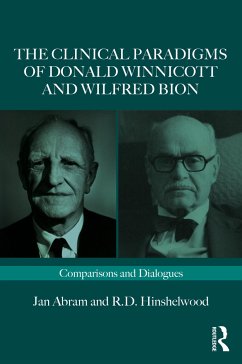
Coasting in the Countertransference
Conflicts of Self Interest between Analyst and Patient
Versandkostenfrei!
Versandfertig in 1-2 Wochen
61,99 €
inkl. MwSt.

PAYBACK Punkte
31 °P sammeln!
Winner of the 2009 Goethe Award for Psychoanalytic Scholarship! Irwin Hirsch, author of Coasting in the Countertransference, asserts that countertransference experience always has the potential to be used productively to benefit patients. However, he also observes that it is not unusual for analysts to 'coast' in their countertransferences, and to not use this experience to help treatment progress toward reaching patients' and analysts' stated analytic goals. He believes that it is quite common that analysts who have some conscious awareness of a problematic aspect of countertransference parti...
Winner of the 2009 Goethe Award for Psychoanalytic Scholarship! Irwin Hirsch, author of Coasting in the Countertransference, asserts that countertransference experience always has the potential to be used productively to benefit patients. However, he also observes that it is not unusual for analysts to 'coast' in their countertransferences, and to not use this experience to help treatment progress toward reaching patients' and analysts' stated analytic goals. He believes that it is quite common that analysts who have some conscious awareness of a problematic aspect of countertransference participation, or of a mutual enactment, nevertheless do nothing to change that participation and to use their awareness to move the therapy forward. Instead, analysts may prefer to maintain what has developed into perhaps a mutually comfortable equilibrium in the treatment, possibly rationalizing that the patient is not yet ready to deal with any potential disruption that a more active use of countertransference might precipitate. This 'coasting' is emblematic of what Hirsch believes to be an ever present (and rarely addressed) conflict between analysts' self-interest and pursuit of comfortable equilibrium, and what may be ideal for patients' achievement of analytic aims. The acknowledgment of the power of analysts' self-interest further highlights the contemporary view of a truly two-person psychology conception of psychoanalytic praxis. Analysts' embrace of their selfish pursuit of comfortable equilibrium reflects both an acknowledgment of the analyst as a flawed other, and a potential willingness to abandon elements of self-interest for the greater good of the therapeutic project.














